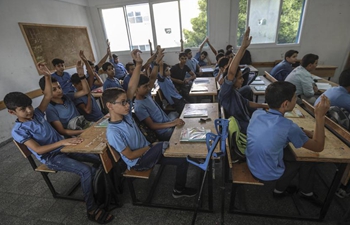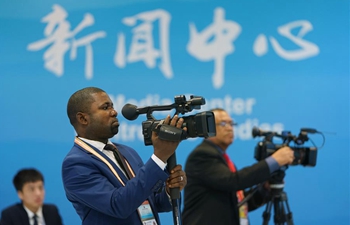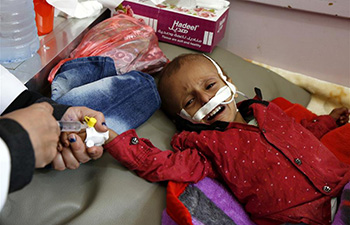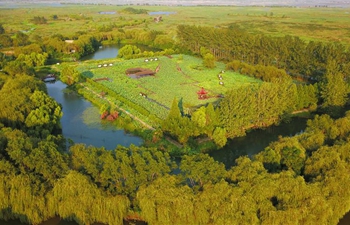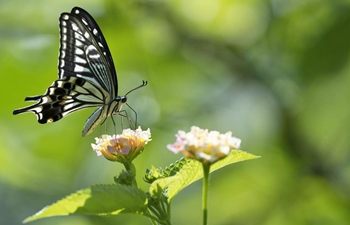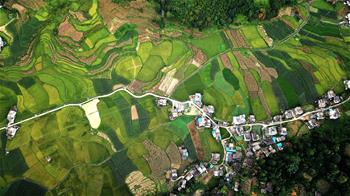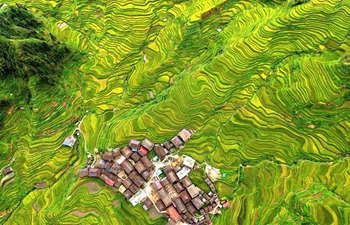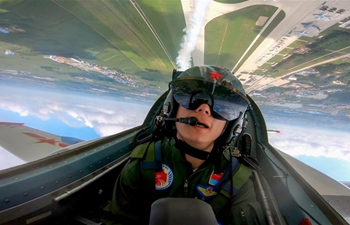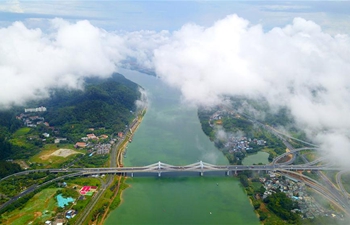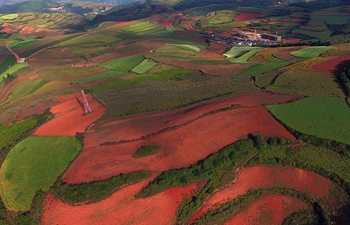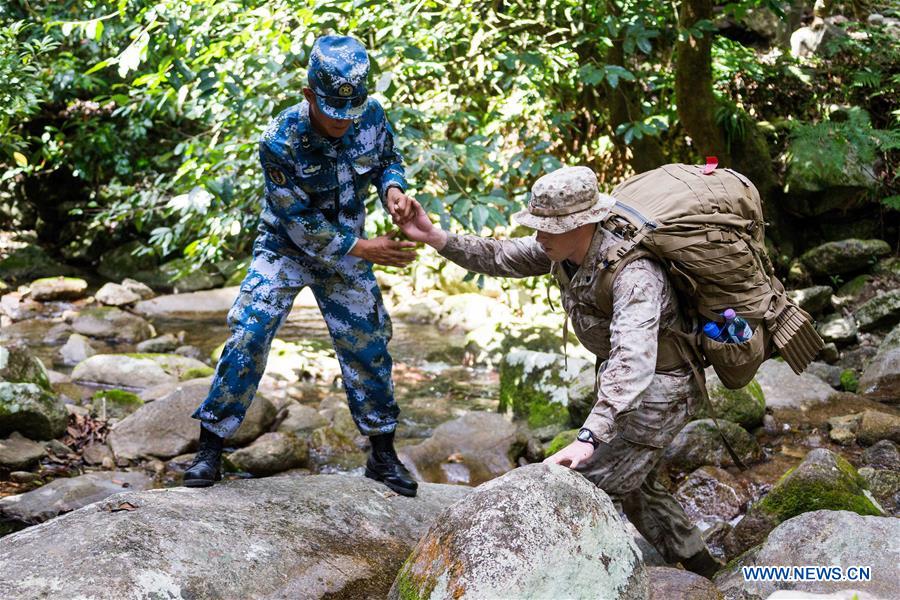
Photo taken on Aug. 30, 2018 shows Chinese and American soldiers taking part in a joint military training mission in Cairns, Australia. The 5th annual installment of Exercise Kowari featuring Chinese, Australian and U.S. armed forces, has wrapped up in Cairns on Wednesday. (Xinhua)
by Levi J Parsons, Yalin Hao
CAIRNS, Australia, Sept. 5 (Xinhua) -- The 5th annual installment of Exercise Kowari featuring Chinese, Australian and U.S. armed forces, has wrapped up in Cairns on Wednesday.
The eight-day trilateral training mission on Australia's far north coast included 30 elite soldiers from the Chinese marines, the Australian army and the U.S. army and marines.
Mixed into three combined teams, Australian Lieutenant Colonel Hape Manaena told Xinhua, "Essentially we all do everything together, that is the whole point of it, to build teamwork and to strive to do things together, that's what we are trying to do."
Focused on adventure training, teams were tasked with kayaking across islands in the Great Barrier Reef, climbing Queensland State's highest mountain Bartle Frere, canoeing, abseiling and cliff diving.
"This joint exercise helps us build confidence and our endurance," Manaena said.
Initiated in 2014, the annual Exercise Kowari has become an important platform for the armed forces of the three countries to deepen mutual understanding and strengthen trust.
This year witnessed the debut of the Chinese marines to the annual Exercise Kowari, whose hard efforts earned high appraisal from Australian and U.S. military officers.
"They are very motivated and absolutely a pleasure to work with...they were like mountain goats and they have no fear of heights, it's really amazing to see," Manaena said.
With limited language, teams mostly have to use hand signals to figure how they can execute missions.
"Any activity we have done, they just see how it is done and embrace it 100 percent," Manaena said.
Marine Rotational Force Darwin Commander, U.S. Colonel Jay Schnelle said: "When you get put into these kind of uncomfortable situations, you learn about yourself and you learn to depend upon the team that are with."
"They understand their strengths and their weaknesses so much better after they do this kind of training," he said.
Chinese Marine Senior Colonel Chen Weidong echoed the sentiments of his American counterpart, saying that the difficult training was a major benefit to everyone involved.
"This exercise will help promote the development of the Chinese marines," he said.
"Our soldiers learned many survival skills and strengthened their ability to cope in field operations."
"This kind of joint exercise also deepens the understanding and friendship between the armed forces of the three countries, laying a good foundation for further exchange activities in the future."
But as well as learning from each other during the missions, amphibian scout of Chinese Marines Chen Qi said at the end of the day Chinese soldiers would also get a chance to teach the Americans and Australians Kung Fu fighting techniques in return for tips on their swimming strokes.
"Our foreign teammates are very friendly and helpful, sometimes we have problems in communication, but it does not matter because we can solve it by body language," she said.
"The best thing I gained from the exercise is that I broke through my own limits."
"All the venues and activities are very unfamiliar to us, but we have to face them and overcome all the challenges, because we represent the Chinese soldiers."
Meanwhile, the soldiers involved in Exercise Kowari are not the only Chinese military personnel down under at the moment.
China has also sent a warship to participate in Australia's largest maritime military exercise taking place off Darwin in northern Australia.
Involving 27 countries, Exercise Kakadu began over the weekend and will see 23 ships, 21 aircraft, one submarine and over 3,000 personnel taking part in a range of activities over the next few weeks.
It is the first time in history China has been involved in the bi-annual exercise.
